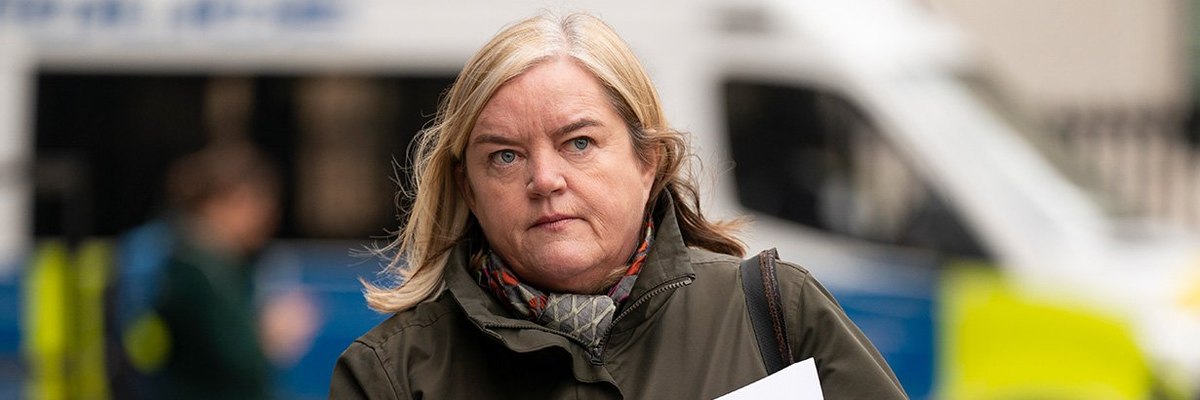More than a third of Britons believe agencies like the police, justice system and local councils would act the same way today as they did in the early 2010s
Last month saw the issue of child grooming gangs return to the headlines, following the publication of Louise Casey’s audit into the matter and the announcement by the government that there would be a statutory national inquiry.
A new YouGov survey finds that nine in ten Britons (90%) support holding a national inquiry into the sexual abuse and rape of children by grooming gangs. Only 3% are opposed, with the rest unsure; support is consistently high across all voting and social groups.
However, trust in such an inquiry is more questionable: only 43% of Britons say they would trust national inquiries into the gangs “a lot” or “a fair amount”.
This figure is comparable to the numbers who would trust the police (43%) and the justice system (42%) on the issue of child grooming gangs.
Confidence in social services is noticeably lower, at 29%, and more minor still is faith in local councils to handle the matter (16%).
There is likewise limited trust in party leaders on child grooming, with only 26% having confidence in Nigel Farage, 22% for Keir Starmer and 18% Kemi Badenoch. This represents a four-point decline for the prime minister since our previous poll in January, while the numbers for his right wing counterparts remain unchanged.
Lessons learned? Britons are divided on whether authorities today would act the same way on child grooming allegations as they did in the 2010s
There is no majority belief that the state would not make the same mistakes today as they did in the 2010s. The public are most likely to have confidence in the police, this only amounts to 44% of Britons, although it is higher than the 35% who think the police would act as they did in the early 2010s.
When it comes to social services and the justice system, Britons are split: 37% think they would act the same today as they did over a decade ago, while 39-40% disagree.
Local councils are least likely to be seen as having learned their lesson, with 41% thinking they would act the same now compared to just 33% who think they would do things differently.
To what extent do Britons think issues of ethnicity have played a role in the child grooming gangs scandal?
The issue of ethnicity has been a key one surrounding child grooming gangs scandal, with a common view being that authorities failed to act because of the ethnicities of perpetrators and fears of inflaming community tensions.
Indeed, the 2022 Telford inquiry found that exploitation was not investigated because of nervousness about race, and fears that investigating concerns against Asian men, in particular, would inflame ‘racial tensions’.
Other reports, such as the 2013 Jay Review into offences in Rotherham, suggested that while there was no evidence that staff were influenced by concerns of race when dealing with cases, there was a widespread perception that senior council and police figures wanted to ‘downplay’ the ethnic dimensions of the abuse.
Our study shows that half of Britons (48%) believe that “concerns about being accused of racism and upsetting specific ethnic minority groups” were a major factor in why police and local authorities failed to act on child grooming gang allegations in the early 2010s, with a further 24% believing them to be a moderate factor.
A majority of all voting groups believe such concerns to be a major or moderate factor in the failures of authorities in the 2010s, as do most white (75%) and ethnic minority Britons (61%).
Those most likely to reject this narrative are Green voters (30%), young people (28% of 18-24 year olds) and ethnic minority Britons (24%) – although in all cases this is a minority view.
Another factor authorities came under fire for was their unwillingness to treat the victims with credibility due to their social circumstances and backgrounds – the Jay Review notes multiple findings of victims being blamed by authorities for their exploitation as a “lifestyle choice”.
The public again largely agrees with the idea that victims were judged negatively based on their circumstances or backgrounds. While fewer Britons see this as a major factor (37%), the combined tally of major and moderate factor answers comes to the same level as it does for the failure to act because of racism belief (72% vs 71%).
That police and councils failed to act because of how they viewed the girls is seen as a major or moderate factor by a majority across all voting and social groups.
Lady Casey has indicated that there is evidence of an “over-representation” of Asian and Pakistani heritage men among suspects in data collected in Greater Manchester, West and South Yorkshire, but criticised the failure to gather data nationally, with studies finding that in only approximately one third of cases was the ethnicity of perpetrators recorded.
The public agrees that such data should be collected as a matter of course, with 78% saying so regarding child sexual exploitation crimes, and indeed 76% saying so for all crimes.
Seven in ten ethnic minority Britons (70%) share this view, in both cases.
The absence of such data does not prevent the public drawing their own conclusions, however, including former home secretary Suella Braverman claiming grooming gang members to be “almost all British-Pakistani”, and Reform UK leader Nigel Farage describing gangs as being “predominantly of Pakistani origin”.
Half of Britons say either that Asian grooming gangs are more common than the Asian share of the UK population would suggest (30% think this) or that most grooming gang offenders are of Asian descent (22%).
Only around a quarter believe either that the ethnicity grooming gang offenders generally reflects the ethnic distribution of the UK population (17%), or that prevalence is higher among white people (6%).
Reform UK voters are the most likely to believe that the majority of grooming gang offenders are Asian (46%), making them the only group for whom this was the most common answer.
Among ethnic minority Britons responses are more diffuse, with the most common being that there is not a greater prevalence of offenders by ethnicity one way or the other (29%). A similar figure think that offenders are mostly Asian or more likely to be than their share of the population would suggest (28%), while 18% think prevalence is higher among white people. Only 3% of white Britons agree on this latter point, with most (57%) thinking offenders are statistically more likely to be Asian.
What do you think the grooming gang inquiry, the handling of the child grooming gangs scandal more widely, and everything else? Have your say, join the YouGov panel, and get paid to share your thoughts. Sign up here.
Photo: Getty











